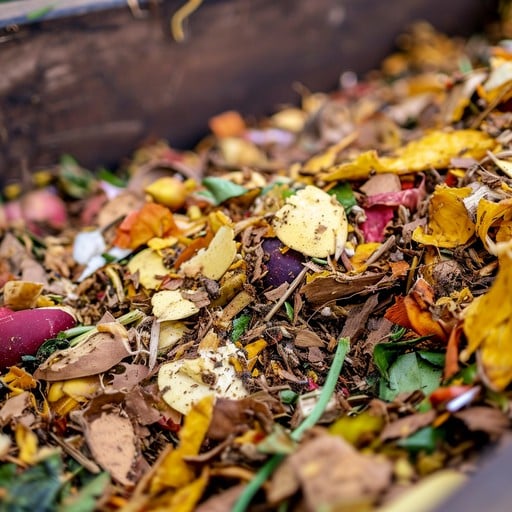Fall Composting Is a Sustainable Habit

Leaf composting is an inexpensive, productive, and sustainable habit that has lots of benefits for the environment and for the composter. It takes place outside, provides exercise and helps the soil, plants, and lawns. Composting also reduces the need to landfill organic material, saving landfill space. So, composting can be a rewarding experience because it is beneficial for the composter and the environment – a win-win.
According to the Compost Foundation’s theme for 2025, “Sustainable communities begin with compost." This highlights composting's foundational role in creating environmentally, economically, and socially resilient communities by diverting organic waste, improving soil health, and supporting local food systems.
Compost is produced when organic matter is broken down by bacteria and fungi into a valuable soil amendment. It is nature’s natural recycling process. Raked leaves, mowed grass, trimmed branches and food scraps are some of the materials you can use to make compost at home. Compost can be used in vegetable gardens and flower beds, raked into an existing lawn, or used with potting soil.
In addition to benefiting the garden health, composting benefits the individual composter by creating free, high-quality soil amendment, reducing gardening costs, water usage and pesticides. Plus, composting activities provide a connection to nature. and personal satisfaction.
Interested? There are several methods of backyard composting and the tools and equipment range from basic gardening tools to special-purpose bins and tumblers. Virginia Cooperative Extension provides extensive information on the benefits of using compost and how to start composting at home in its Backyard Composting publication. The Compost Foundation also provides extensive resources for composting at home.
If composting at home is not for you, you can place yard waste in paper yard waste bags or in a container labeled “Yard Waste” for curbside collection by your trash and recycling collection company. The special collection of yard waste is mandatory from March through December in Prince William County. The collected yard waste is processed at the County compost facility. The resulting compost product can be purchased at the Prince William County Landfill or Compost Facility to use in gardens and landscapes.
So, if you are a gardener, a sustainability enthusiast, or looking to try a new healthy activity, fall is a great time to get in the habit of composting your leaves and other yard waste or separating these items for collection to make a soil amendment that is beneficial for your garden and the globe, thus creating sustainable communities.